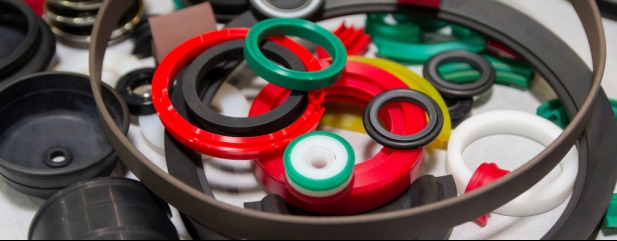Archived article
Please note that tax, investment, pension and ISA rules can change and the information and any views contained in this article may now be inaccurate.
Specialist distributor Diploma is a rare winner from global supply chain constraints

Ever since the world economy regained its footing after the first round of the pandemic, supply chains have been struggling to keep pace first with consumer demand then with industrial demand.
Some UK companies have opted to stockpile components to meet future sales while others have taken the strategic decision to try to shorten their supply chains by ‘near-shoring’ the parts they need.
This has all played to the strengths of FTSE 250 specialist distributor Diploma (DPLM), which supplies industrials controls, seals and life science equipment.
FOCUS ON THE ESSENTIALS
In the year to September 2021, the group posted a 46% increase in revenue to £787 million with organic revenue up 12% and acquisitions contributing 34% growth.
Underlying revenue growth was due to market share gains driven by management’s bold decision to diversify its products to meet more end-markets.
In the controls division, which supplies specialist wiring, cable, connectors and control devices, underlying growth was 16% while the recently-acquired US unit Windy City Wires had an outstanding year, registering 26% revenue growth.
More than half of the revenue from the controls business comes from specialist wire and cables where it serves customers in areas like data centres.
The rest comes from fasteners, connectors, fluid controls and adhesives used in industries ranging from aerospace and defence, motorsport and food and beverage processing.
The seals business supplies original equipment seals and gaskets which are custom-made and fitted to heavy machinery and specialised industrial equipment.
It also supplies after-market replacement seals and gaskets for heavy machinery commonly used in construction, mining and agriculture, as well as in wind turbines.
The smaller but fast-growing life sciences unit supplies medical equipment, instrumentation and disposable items to the healthcare and environmental markets.
Breakdown of each business area by sales
PRICING POWER
Each part of Diploma supplies must-have kit to its customers, so the key for management is to control the supply chain and its inventories to ensure it has the right products available whenever and wherever the customer needs them.
If it can do that successfully where others can’t, the firm can afford to pass on price increases because its customers have few alternative
options and could face big costs for switching to a new supplier.
This is especially the case with industrial seals for heavy equipment, where utilisation is key and downtime has to be kept to a minimum so that projects are delivered on time and to budget.
Similarly, for firms running data centres having the correct bit of kit to hand when it is needed is worth paying up for rather than not being able to deliver for their own customers.
In a second quarter trading update earlier this month the firm said it was successfully managing input cost inflation and supply chain hold-ups and passing on price hikes to customers so that margins would be at the top end of its target range.
It also raised its revenue growth forecast for the year to September 2022 from 10% to 20% thanks to better than expected underlying growth and two new acquisitions.
GROWING ITS MARKET SHARE
A big part of Diploma’s growth strategy has been timely acquisitions to build scale and market share, and along with its trading update the firm announced it had recently acquired two ‘high-quality businesses’ for a combined £121 million.
R&G Fluid Power, acquired for £100 million, builds on Diploma’s existing UK aftermarket seals distribution operations and brings £65 million of annual sales.
The business has ‘significant’ organic growth potential through the aftermarket e-commerce channel, further regional expansion through its in-house platform and further product cross-selling.
LJR Electronics, acquired for £21 million, increases the group’s reach in the US controls market and is expected to contribute around £14 million of full year sales.
QUALITY AT A PRICE
Shore Capital analyst Akhil Patel calculates that, excluding the 2020 financial year, Diploma has grown its adjusted EPS (earnings per share) by around 16% per annum over the last decade and is aiming to grow by the same amount going forward.
‘Combining strong returns on capital investment, financial borrowing headroom at a low cost and a strong M&A track record, we believe the strategy is achievable,’ says Patel.
Based on the firm’s forecast of 20% revenue growth and operating margin close to 19% for this year, Shore Capital has raised its estimate for 2022 EBITDA (earnings before interest, tax, depreciation and amortisation) by 15% and its EPS estimate by 16% to 102.9p, implying over 20% growth on 2021.
After their 11% pop on the day of the update the shares trading are on 27 times current year earnings and a similar multiple for 2023, given Shore Capital left its profit forecast unchanged.
While that isn’t exorbitant, it isn’t cheap either and relies on the firm’s continued ability to win market share through new market segments and earnings-accretive acquisitions while maintaining a tight grip on costs and its ability to pass on rising input costs.
Important information:
These articles are provided by Shares magazine which is published by AJ Bell Media, a part of AJ Bell. Shares is not written by AJ Bell.
Shares is provided for your general information and use and is not a personal recommendation to invest. It is not intended to be relied upon by you in making or not making any investment decisions. The investments referred to in these articles will not be suitable for all investors. If in doubt please seek appropriate independent financial advice.
Investors acting on the information in these articles do so at their own risk and AJ Bell Media and its staff do not accept liability for losses suffered by investors as a result of their investment decisions.
Issue contents
Feature
- Enough is enough: The FTSE 100 companies which face a grilling from investors
- Specialist distributor Diploma is a rare winner from global supply chain constraints
- How investors including people in retirement should deal with 7% inflation
- A complete exit from Russia is likely to cost companies dearly

 magazine
magazine








